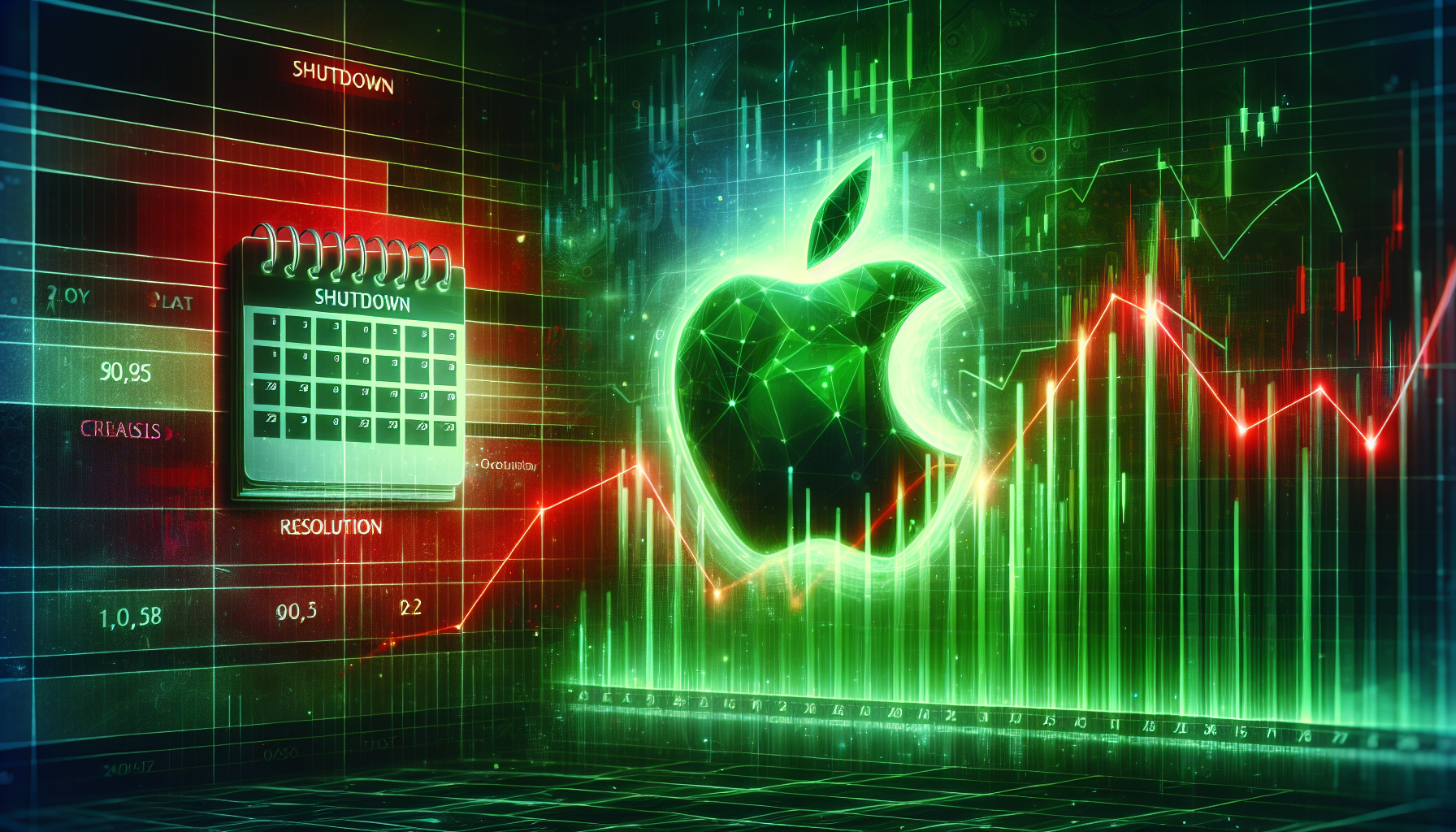
tl;dr
U.S. stocks jumped on Monday as Apple's share price hit a new high and hopes for a government shutdown resolution grew, with investors eyeing earnings reports and inflation data amid shifting market dynamics.
**Stocks Rise on Apple Surge and Hopes for Government Shutdown Resolution**
U.S. stocks closed higher on Monday, fueled by a surge in Apple shares and optimism surrounding a potential end to the 20-day government shutdown, as investors turned their attention to upcoming earnings reports and inflation data. The rally marked a rebound from a volatile week, with major indices posting gains amid shifting market priorities.
The Dow Jones Industrial Average climbed 515.97 points, or 1.12%, to 46,706.58, while the S&P 500 rose 1.07% to 6,735.13. The Nasdaq Composite surged 1.37% to 22,990.54, driven by tech giants. Apple led the charge, jumping nearly 4% to a record closing price after Loop Capital upgraded the stock to "buy," citing strong iPhone demand and a "long-anticipated adoption cycle" expected to boost shipments through 2027.
**Government Shutdown Outlook Brightens**
The looming federal shutdown, now in its 20th day, appeared closer to resolution. National Economic Council Director Kevin Hassett told CNBC’s *Squawk Box* that the shutdown “is likely to end sometime this week,” with moderate Democrats potentially uniting to pass a deal. The White House hinted at stronger measures to force a resolution if negotiations falter.
Despite recent turbulence—including U.S.-China trade tensions, regional bank losses, and declines in AI stocks—the market found footing as the third-quarter earnings season began. So far, 76% of the 58 S&P 500 companies that have reported results have exceeded expectations, surpassing the 68% average for the first week of earnings seasons and slightly outpacing last quarter’s 73%, according to Bank of America.
**Earnings and Policy Focus Drive Sentiment**
This week, investors await reports from major firms like Netflix, Coca-Cola, Tesla, and Intel, hoping for continued strong performance to offset macroeconomic headwinds. Meanwhile, concerns over credit risks—sparked by bad loans at Zions Bancorporation and Western Alliance—faded as shares of both banks rose 4% on Monday.
Jamie Cox, managing partner at Harris Financial Group, noted the market’s shift from geopolitical and fiscal uncertainties to “monetary policy and earnings,” which he called “far more positive and consequential.” He urged investors to capitalize on the broader market rally while it lasts.
**Trade Tensions Ease, Tariff Fears Lessen**
Positive developments in U.S.-China relations also buoyed sentiment. President Donald Trump expressed optimism about a “fair” trade deal ahead of his meeting with Chinese President Xi Jinping in South Korea, while Treasury Secretary Scott Bessent signaled a de-escalation, hinting at an upcoming meeting with Chinese officials. Traders took these remarks as signs that Trump’s threat of a 100% tariff on Chinese imports in November may not materialize.
As the market balances earnings momentum, policy shifts, and geopolitical risks, the focus remains on whether strong corporate results and a potential shutdown resolution can sustain the upward trajectory. For now, investors are cautiously optimistic, navigating a landscape where both opportunities and uncertainties persist.